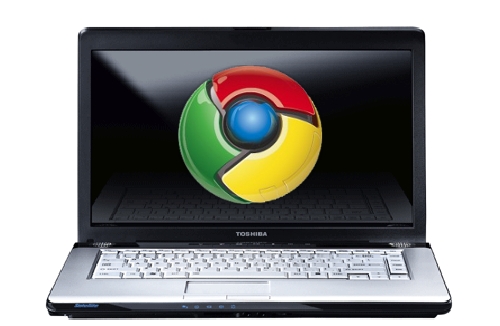Google Chrome: Cloud Computing Goes Mainstream
By Macklin White In Industry News, Search News
As it turns out, the second half of that question has a perfectly logical answer. With its already established, minimally designed Chrome browser and the soon-to-be released operating system, Google intends to blur the line between the two. In fact, the idea is to change the personal computing paradigm entirely.
Whether you are the proud owner of a Mac or a PC, your method of using the machine has been basically the same for years. You buy the computer and it already has an operating system and a multitude of programs installed to the hard drive. Then, you have the option of either purchasing physical software or downloading more programs that take up additional memory space. The web browser is just another of many programs to be found in a list accessed from the desktop. Google’s view of the future is decidedly net-centric, and it stands in stark relief next to the longstanding hard drive-based tradition.
Google tipped its hand at a media briefing last week, where executives announced that the Chrome OS will be marketed as standard on a select crop of specialized netbooks beginning next fall. Tech-savvy shoppers have conventionally had an aversion to netbooks because of their lack of memory and processing speed. In short, they are meant to connect users to the Internet and little more.
But what if the Internet served as one massive hard drive from which all users would gain access to their “programs” and “applications?” That is precisely what Google has envisioned. It’s all part of a phenomenon known as cloud computing, which could be setting up to challenge the current hardware-centric model in the coming years. Google’s netbooks would only come equipped with a single program: Chrome. Everything else would be accessed online through that hybrid of operating system and web browser.
Needless to say, a computer tasked with running only a single program would run much faster than those running multiple programs at once. Early reports about the netbooks’ boot times are the stuff of tech-nerds’ dreams. Some have suggested that they take only seven seconds from turning on the power to logging in. Google executive Sundar Pichai told Wired: “We want Google Chrome OS to be blazingly fast… to boot up like a TV.”
It remains to be seen whether the cloud computing will catch on with the masses, although there are already examples of it flourishing today. As reported in this space last month, Google reached an agreement to host e-mail for employees of the city of Los Angeles in its servers. The same can be said for many departments and agencies of the federal government.
In a few years’ time, it’s very possible that we will be referring to computers with massive hard drives as little more than a historical footnote – the kind of thing that could have its own exhibit in some museum of outdated technology.


No Comment